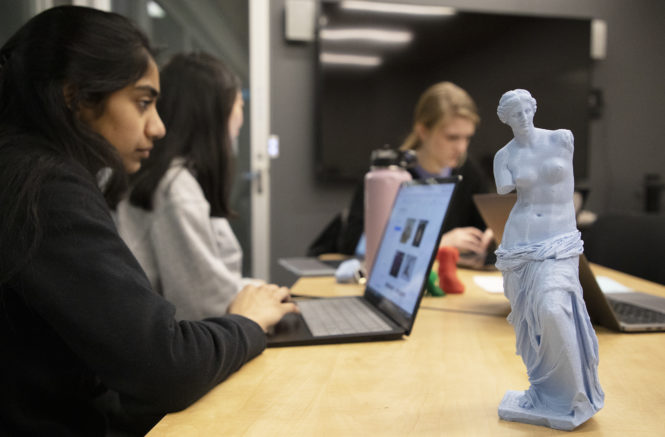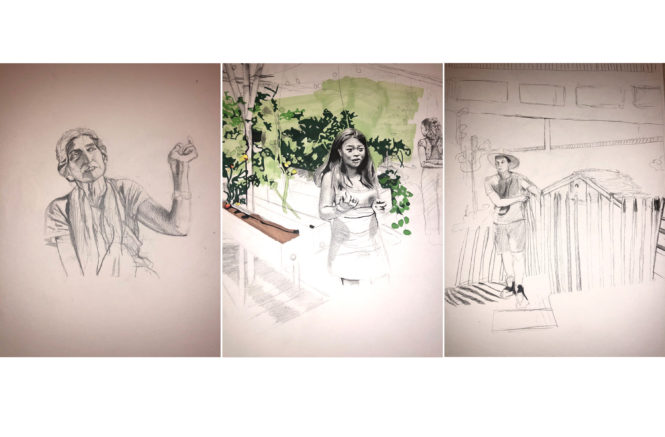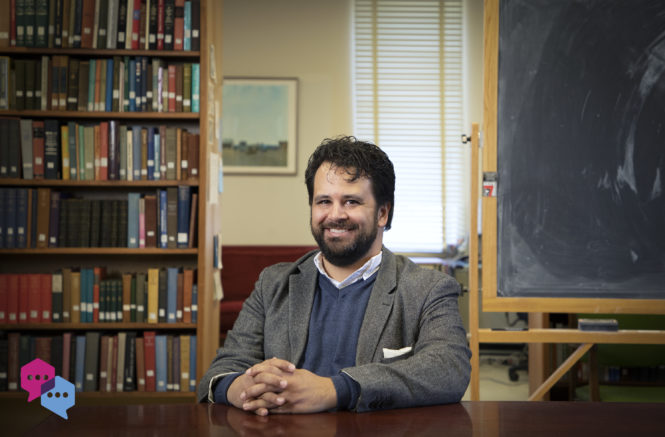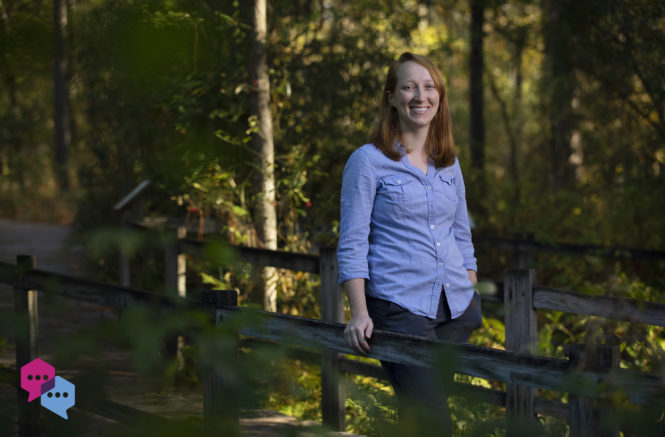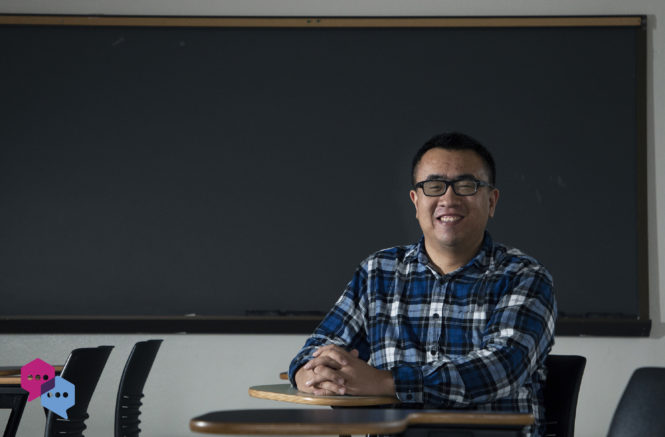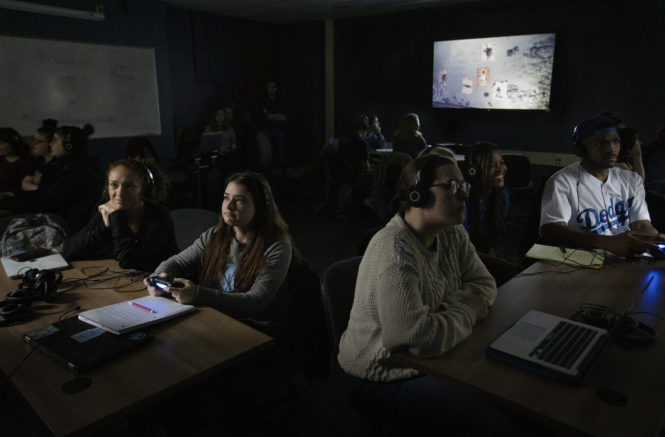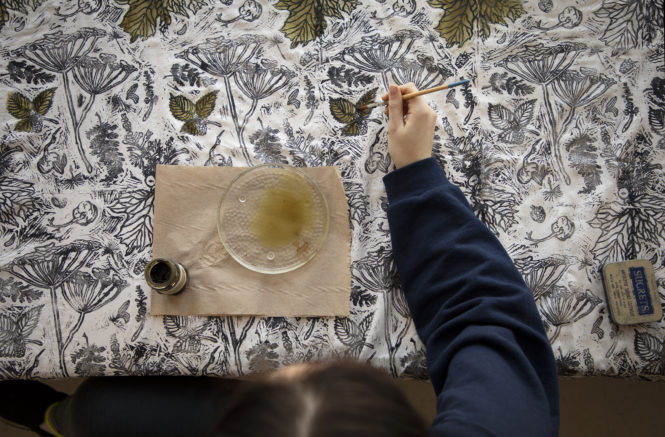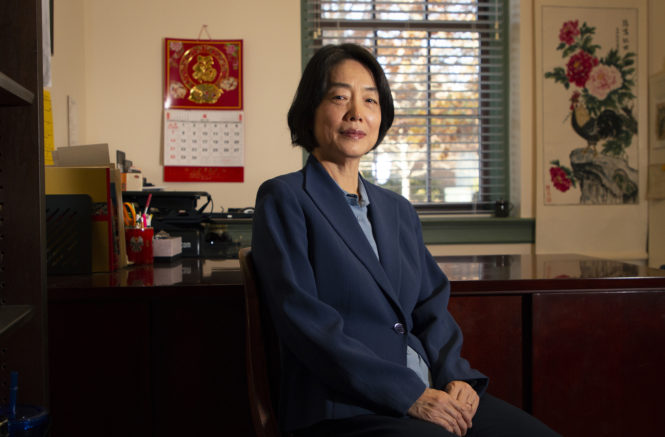De’Ivyion Drew
De’Ivyion Drew is a sophomore double-majoring in studio art and in African, African American, and diaspora studies within the UNC College of Arts & Sciences. She is also a part-time student at Duke University, studying African American and black studies. She uses brass, ivory, copper, and stone to create sculptures that mimic representations of African royalty and serve as a positive commentary on present-day black culture.
Boosting Teen Spirit
More than 13 percent of U.S. teenagers between the ages of 12 and 17 experience a major depressive episode, which can follow them into adulthood. How can families protect their teens’ mental health as they grow? More fun and family time are just a few ways, according to researchers from the UNC Carolina Population Center.
The Magic of Classics
Classicists help connect our lives to those of the ancient world, but in Suzanne Lye's course on magic and religion, her students do more than just connect — they create. And they learn to relate to the everyday problems and spellbinding solutions of ancient peoples.
The Art of French Drawing
UNC senior Savannah Faircloth traveled to Paris in the summer of 2019 to learn about French culinary culture and the relationship Parisians have with food. Then, she drew their portraits.
Self-Care Success at Work
American work culture can be demanding and intense — so much so that people often put their jobs before their physical and emotional needs. But taking care of ourselves makes us better workers and improves how companies function, according to organizational behavior professor Mike Christian.
Benjamin Frey
Benjamin Frey is an assistant professor in the Department of American Studies and adjunct professor in the Department of Linguistics within the UNC College of Arts & Sciences. He studies the Cherokee language, now endangered, in order to recover the social networks, spaces, domains, and means of transference that once allowed it to thrive.
Emma York Marzolf
Emma Marzolf is a conservation grower at the North Carolina Botanical Garden. She collects native seeds from wild plant populations across North Carolina and then grows and stores them for future seed restoration efforts.
Li Ke
Li Ke is a postdoctoral researcher in the Culture, Curriculum, and Teacher Education program within the UNC School of Education. He promotes scientific literacy among K-12 students by helping them utilize models and reasoning to approach social issues in science such as climate change.
Leveled-Up Learning
The Greenlaw Gameroom is a one-of-a-kind space at UNC. Through the conduit of video games, students learn across disciplines, explore the ancient world, analyze the horror genre, and conduct surveys.
Beatrice Williams
Beatrice Williams is a doctoral candidate within the UNC Adams School of Dentistry. She researches how comprehensive dental care can improve the physiological and physical health of people living with HIV.
Through a Different Lens
How can students strengthen their education by stepping outside their major and trying something new? Two professors — one in studio art and the other in biology — pose this question to undergraduate students in a course combining science and printmaking.
Mastering Mandarin for Business
With nearly 1 billion speakers, Mandarin Chinese is the most spoken language in the world. That’s almost 15 percent of the global population — and why UNC Asian studies professor Yi Zhou has spent the past decade teaching advanced Mandarin courses to undergraduate and MBA students.





